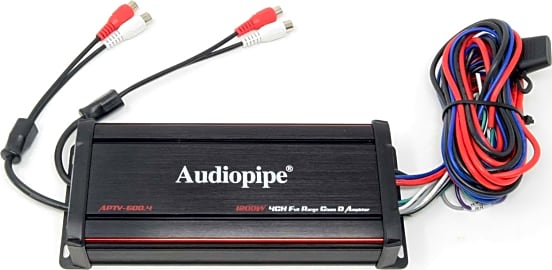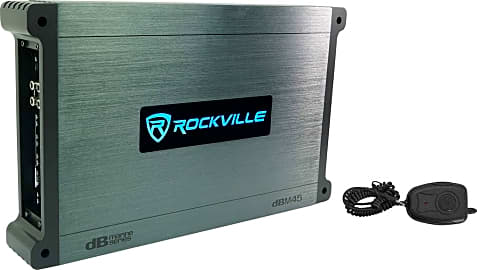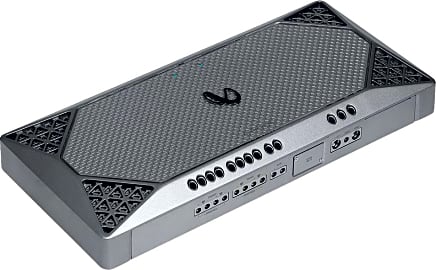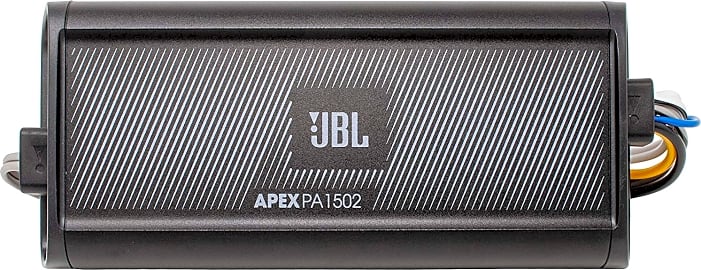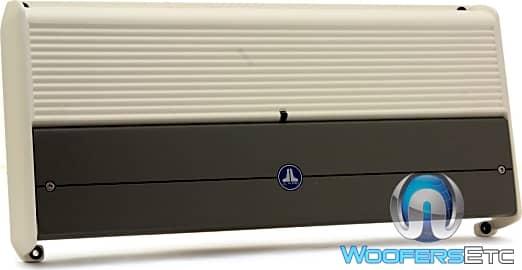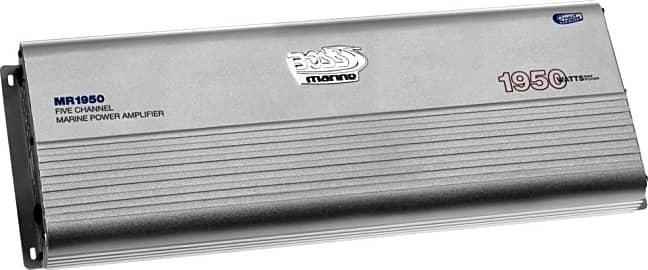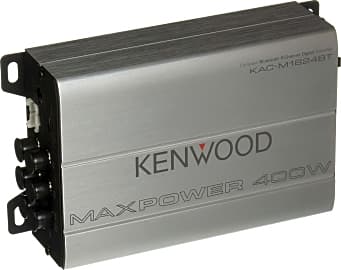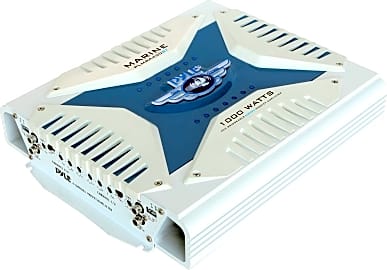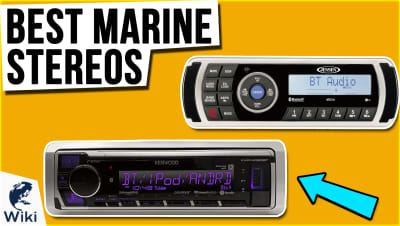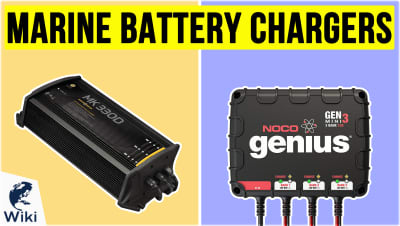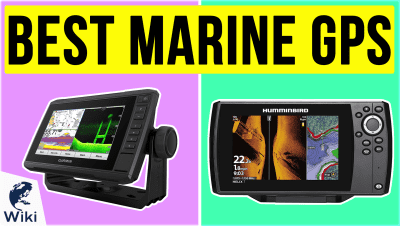The 10 Best Marine Amplifiers

This wiki has been updated 42 times since it was first published in October of 2016. If you are looking to pump up the jam as you take to the water on your boat, you're going to need a capable amplifier to beef up that sound system, especially if it has to contend with an engine at high revs. It's important to have plenty of wattage behind multiple speakers, so we've put together a list of some of the best marine amps available, ranked according to price, power, and durability. When users buy our independently chosen editorial selections, we may earn commissions to help fund the Wiki.
Editor's Notes
November 05, 2020:
Whether you're looking to upgrade your boat's stock audio system or build a new one from scratch, a powerful stereo adds an all-new ambiance to an already enjoyable experience on the water. What makes these stand out from regular automotive amplifiers is that they are built with tougher, corrosion-resistant components to withstand the harsh elements, including the corrosive salty air that is typical in a marine environment.
There have been three upgrades to our previous list in this latest revision of our ranking, starting with the Pyle PLMRA430BT. This is very similar to the Pyle Hydra that featured before it, but this new version has the addition of Bluetooth connectivity, which we felt could not be overlooked, especially as it now requires no head unit and can now connect directly to phones and other digital devices.
Next, we added the JBL Apex PA1502. This is a popular choice with motorcyclists and boating enthusiasts alike, as it features a compact aluminum chassis, which can easily be fitted inside a small locker space or faring while providing enough output level to compete with a loud engine.
Finally, we included the Rockville DBM1, as this manufacturer of automotive and marine electrical goods has gone the extra mile to ensure that this model is truly weather resistant. It also has the power and connectivity to accommodate a large vessel, with crossovers that span a wide sonic spectrum, to allow you to trim your sound to suit your craft.
July 18, 2019:
Despite what you may hear on forums and from some in the boating community, it's not generally a good idea to use car audio electronics in boats. Marine equipment is built with an eye on preventing damage from moisture and salt in the air, so it's basically always worth the extra focus. With options like the Audiopipe RZR and Kenwood M1824BT, you can achieve great audio quality without spending a fortune. Companies like Pyle and Rockville make even less expensive models, though they aren't quite as high-fidelity. JBL and Boss Audio also make some great mid-range amps, and they're known for their ability to get very loud
If you're willing to spend a little more, JL and Wet Sounds are the two brands that dedicated boating enthusiasts constantly discuss. They're two of the go-to options for those who are able to make the investment, and you'll almost certainly appreciate their sound quality and durability if you decide to go with either. Some users claim that JL amps sound a little warmer and rounder, while Wet Sounds tend to be bolder and brighter, making the former great for chilling by the sand dunes or partying in the marina, and the latter possibly better for use while actively tubing or wakeboarding. Sound is, of course, very subjective, but these two brands are certainly among the best.
Special Honors
DCB Performance Boats Watercraft come in many shapes and sizes, and if you're looking for a custom marine stereo installation that is tailored to your particular vessel, then look no further than Dave's Custom Boats, or DCB, for short. This Southern California builder is well-versed in configuring speakers, subwoofers, head units, wireless interfaces, and amplifiers to help you achieve the best possible sound while on the water. dcbperformanceboats.com
The Motion Of The Ocean
But when dealing with vehicles that spend many consecutive hours in the wet, salty sea, amplified audio takes more consideration than just plugging in some speakers.
There are few experiences as memorable as spending time on the water. From small lakes to the open ocean, time afloat can be truly moving, whether it's a relaxing day-trip with friends or a long and arduous fishing trek. And what better way is there to party with the crew, or pass the time before a multi-hour trawling session, than with some uplifting tunes?
Just like any mode of transportation, people go to great lengths to up the entertainment value of their water-bound vehicles, which is quite understandable. After all, for the vast majority of sailors and boating enthusiasts, the water is specifically a place for enjoyment, or for hard work. Humans, as a species, are quite dedicated to living on solid ground, so when we set sail, it's usually with a purpose. Whether that purpose is work or play, it pays to plan ahead, and to craft our floating craft exactly to our needs and our liking. One way to customize your vessel for an even more enjoyable time is to install quality sound system; few have ever regretted the decision to augment their yacht with powerful audio gear. And even if it's a long day's work you're sailing towards, the courage and inspiration (or maybe just distraction) of good music can help to take your mind off the looming task. But when dealing with vehicles that spend many consecutive hours in the wet, salty sea, amplified audio takes more consideration than just plugging in some speakers.
The Sound Of Water
Naturally, sound works exactly the same on the water as it does on land. A source of vibrations sends waves through the atmosphere, our ears pick them up, and our brain tells us what they sound like. While marine audio operates a lot like car audio does, it is a separate field. With such constant high humidity, the generally unrelenting sunshine, and the often high temperatures all commonly encountered at sea, selecting audio equipment for the boat in your life is a different quest than making your sedan bump.
While marine audio operates a lot like car audio does, it is a separate field.
One major difference is the isolation; it's easy to roll the car windows up, but boats can be susceptible to notably higher noise levels than cars. A good marine audio outfit will be able to compensate for those lost and distorted decibels not only without overheating, but while lasting longer than just one season. As any seasoned sailor will attest, the open water is among the harshest environments on the planet at times. In that light, the constant sting of salt, threat of surges, and possibility of storms all call for some seriously bumping speakers. How else will you drown out the sheeting rain and pounding waves?
Of course, you're dedicated to providing yourself and your passengers with the highest quality entertainment, that much is obvious. Some people swear by standard car audio setups, coupled with slight modifications to accommodate for aquatic travel. Many of these people claim that there's no difference between automotive and marine stereo equipment. However, you'll rarely see long-term reviews of automotive audio components installed in boats, because quite frankly, they don't always stand up to the elements. Car interiors are generally lower in humidity than the surrounding environment, while the slightest leak in the wrong spot on a marine amplifier can easily spell a disabling short.
There's a reason why manufacturers make concerted efforts to market marine equipment. On many of the sailing-oriented choices, the internal components themselves are treated with anti-moisture coatings. A lot of amplifiers intended for use at sea include elastic polymer bushings to isolate the unit from the speakers' vibrations. A few of the highest-quality options use high-pH inclusions to create caulk-like sealants with exceptional resistance to corrosion from salt. If you find a unit sporting this type of high-alkalinity treatment, you can be certain you've found a good brand.
What to Look FoT
In addition to the common features mentioned above, there are a few more aspects you'll want to consider when deciding on a sea-worthy amplifier. It's considerably more difficult to run power cables through a boat than through automobiles, so the amplifier is usually mounted quite near the main battery. This placement can be challenged by minimal airflow and, more dangerously, fuel fumes. As such, most quality brands make certain to seal off any potentially spark-producing components especially tightly, thoroughly preventing combustible gases from entering the unit. In other words, if you don't want to blow up your boat, you should probably choose a specialized marine amp.
But the truth is, even if you're sticking with your craft's stock speakers, a new amplifier will help them sound even better than they already do.
With regards to environmental noise, you may want to overshoot your intended power requirements a bit to keep from losing the most interesting parts of your favorite songs to the wind. And, of course, be sure to keep in mind how much current your setup draws, as well as any upgraded cones you plan to add in the near future. It's awfully frustrating to replace an underpowered or fried amplifier just after upgrading it.
Everyone knows that in many cases, the beats make the song; just like in your station wagon back on the road, don't neglect the bass! A separate sub and amplifier is far more likely to satisfy your inner bass-head than a 5-channel, all-in-one unit is, so don't hesitate to set up a second bracket near the battery and invest in a quality subwoofer.
But the truth is, even if you're sticking with your craft's stock speakers, a new amplifier will help them sound even better than they already do. The right choice will ensure that you can listen to high-fidelity tunes at loud volumes, no matter where on the deep blue sea you're sailing.



